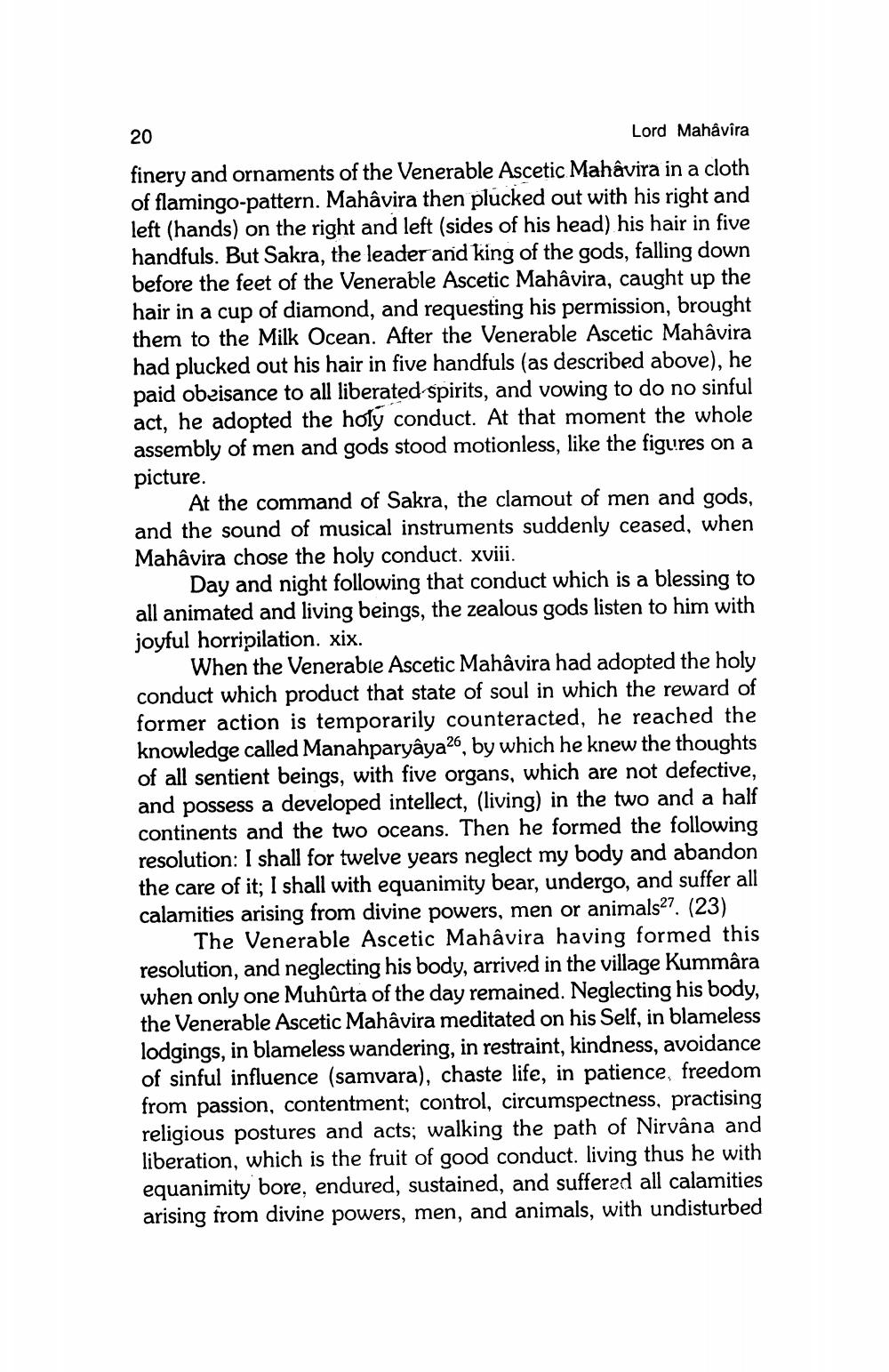________________
20
Lord Mahâvîra
finery and ornaments of the Venerable Ascetic Mahavira in a cloth of flamingo-pattern. Mahâvira then plucked out with his right and left (hands) on the right and left (sides of his head) his hair in five handfuls. But Sakra, the leader and king of the gods, falling down before the feet of the Venerable Ascetic Mahâvira, caught up the hair in a cup of diamond, and requesting his permission, brought them to the Milk Ocean. After the Venerable Ascetic Mahâvira had plucked out his hair in five handfuls (as described above), he paid obeisance to all liberated spirits, and vowing to do no sinful act, he adopted the holy conduct. At that moment the whole assembly of men and gods stood motionless, like the figures on a picture. At the command of Sakra, the clamout of men and gods, and the sound of musical instruments suddenly ceased, when Mahâvira chose the holy conduct. xviii.
Day and night following that conduct which is a blessing to all animated and living beings, the zealous gods listen to him with joyful horripilation. xix.
When the Venerable Ascetic Mahâvira had adopted the holy conduct which product that state of soul in which the reward of former action is temporarily counteracted, he reached the knowledge called Manahparyâya26, by which he knew the thoughts of all sentient beings, with five organs, which are not defective, and possess a developed intellect, (living) in the two and a half continents and the two oceans. Then he formed the following resolution: I shall for twelve years neglect my body and abandon the care of it; I shall with equanimity bear, undergo, and suffer all calamities arising from divine powers, men or animals27. (23)
The Venerable Ascetic Mahâvira having formed this resolution, and neglecting his body, arrived in the village Kummâra when only one Muhûrta of the day remained. Neglecting his body, the Venerable Ascetic Mahâvira meditated on his Self, in blameless lodgings, in blameless wandering, in restraint, kindness, avoidance of sinful influence (samvara), chaste life, in patience, freedom from passion, contentment; control, circumspectness, practising religious postures and acts; walking the path of Nirvâna and liberation, which is the fruit of good conduct. living thus he with equanimity bore, endured, sustained, and suffered all calamities arising from divine powers, men, and animals, with undisturbed




